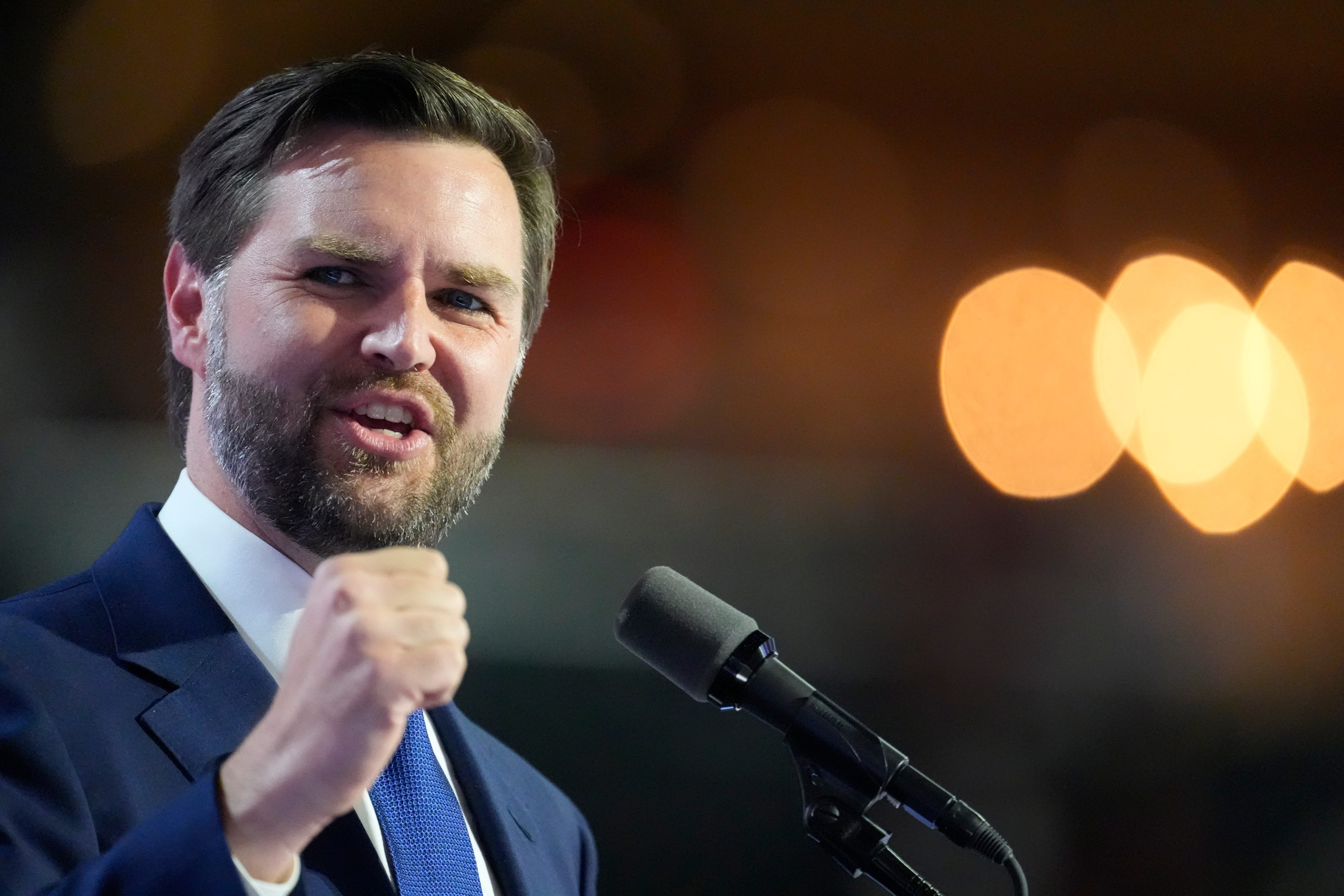July 18, 2024
On the third day of the Republican National Convention, themed “Make America Strong Once Again,” the GOP laid out their vision for the world, outlining what US foreign policy could look like under Donald Trump and JD Vance.
In his keynote address, Vance officially accepted the nomination to be Trump’s VP running mate and used his working-class upbringing to make his key foreign policy points: that globalization has ruined neighborhoods like his, foreign intervention has led to his friends dying overseas, and that the working class is declining because Washington is in the pocket of multinational corporations.
He said the US needs “a leader who is not in the pocket of big business but answers to the working man, union and nonunion alike … a leader who won’t sell out to multinational corporations.” This runs in contrast to an interview Trump gave this week callingfor a more than $700 billion cut to the corporate tax rate.
Vance couldn’t have been received with more enthusiasm. He called out his grandmother, who he referred to as “Mamaw,” and his mother Beverly, who struggled with drug addiction in his early life, as the crowd broke into chants of “JD’s mom” and “Mamaw.”
“To the people of Middletown, Ohio, and all the forgotten communities in Michigan, Wisconsin, Ohio, Pennsylvania, and every corner of our nation,” Vance said, shouting out key swing states in this year’s election, “I promise you this: I will never forget where I came from.”
Before he took to the stage, the evening’s speakers painted Trump as a strongman necessary during tumultuous times. They also called for increasing US energy production, hammered Joe Biden on his trade policy and handling of the Afghanistan withdrawal, and called for a crackdown on immigration through the Southern border.
Texas Gov. Greg Abbott was met with a resounding chant of “Send them back! Send them back! Send them back!” during his speech in praising Trump’s immigration agenda, which he said includes plans to deport migrants who enter the US illegally. He was followed by Trump’s former ICE director, Tom Homan, who told undocumented immigrants “You’d better start packing now. You're damn right. Because you’re going home.”
Doug Burgum gave a hint at what energy policy would look like under Trump 2.o. The North Dakota governor is a likely pick for Trump’s Energy Secretary and linked US energy independence with national security, saying that Biden “is using mandates to shut down reliable baseload electricity. That is why your electric bills have shot upwards.” He ended by taking a knock at Biden’s efforts to incentivize Americans to purchase electric vehicles, saying that Trump will let the crowd keep driving gas-powered cars.
He was followed by the parents of the 13 US soldiers killed in the bombing in Kabul amid the Afghanistan withdrawal in 2021 who, alongside military officials, criticized Biden’s handling of the withdrawal and response in the aftermath.
But could Republican criticisms of the withdrawal from Afghanistan under Biden come back to bite them when it comes to defending Trump’s plans for Ukraine? Vance said at the Munich Security Conference earlier this year that it is unrealistic for the US to continue providing the same level of assistance to Ukraine moving forward, and Trump has signaled that he would reduce aid to Ukraine. But would the former president – who prides himself on being a winner – be willing to lose Ukraine?
Tomorrow, on the RNC’s final day, Trump will address the country for the first time since becoming the official Republican nominee – and less than a week after he was nearly assassinated.
From Your Site Articles
More For You
As expected, the Supreme Court struck down the bulk of Donald Trump's sweeping “Liberation Day” tariffs as illegal … and almost nothing changed.
Most Popular
What's Good Wednesdays
What’s Good Wednesdays™, February 25, 2026
Sponsored posts
Small businesses at a crossroads
Chris, an Army veteran, started his Walmart journey over 25 years ago as an hourly associate. Today, he manages a Distribution Center and serves as a mentor, helping others navigate their own paths to success. At Walmart, associates have the opportunity to take advantage of the pathways, perks, and pay that come with the job — with or without a college degree. In fact, more than 75% of Walmart management started as hourly associates. Learn more about how over 130,000 associates were promoted into roles of greater responsibility and higher pay in FY25.
Ukraine's President Volodymyr Zelenskiy, Finland's President Alexander Stubb, Estonia’s Prime Minister, President of the European Commission Ursula von der Leyen and other European leaders visit memorial to fallen Ukrainian defenders at the Independent Square on the fourth anniversary of Russia's full-scale invasion, in Kyiv, Ukraine February 24, 2026.
Ukrainian Presidential Press Service/Handout via REUTERS
Somewhere in the Donbas region, Ukrainian soldier Artem Bondarenko says he hasn’t slept through the night in months as he defends Eastern Ukraine.
- YouTube
In the latest episode of Vladimir Putin and Xi Jinping's hit wellness podcast This Authoritarian Life, we learn how positive communication patterns can break negative cycles in our relationships -- especially our relationships with Iran, Syria, Venezuela, and Cuba. #PUPPETREGIME
© 2025 GZERO Media. All Rights Reserved | A Eurasia Group media company.
